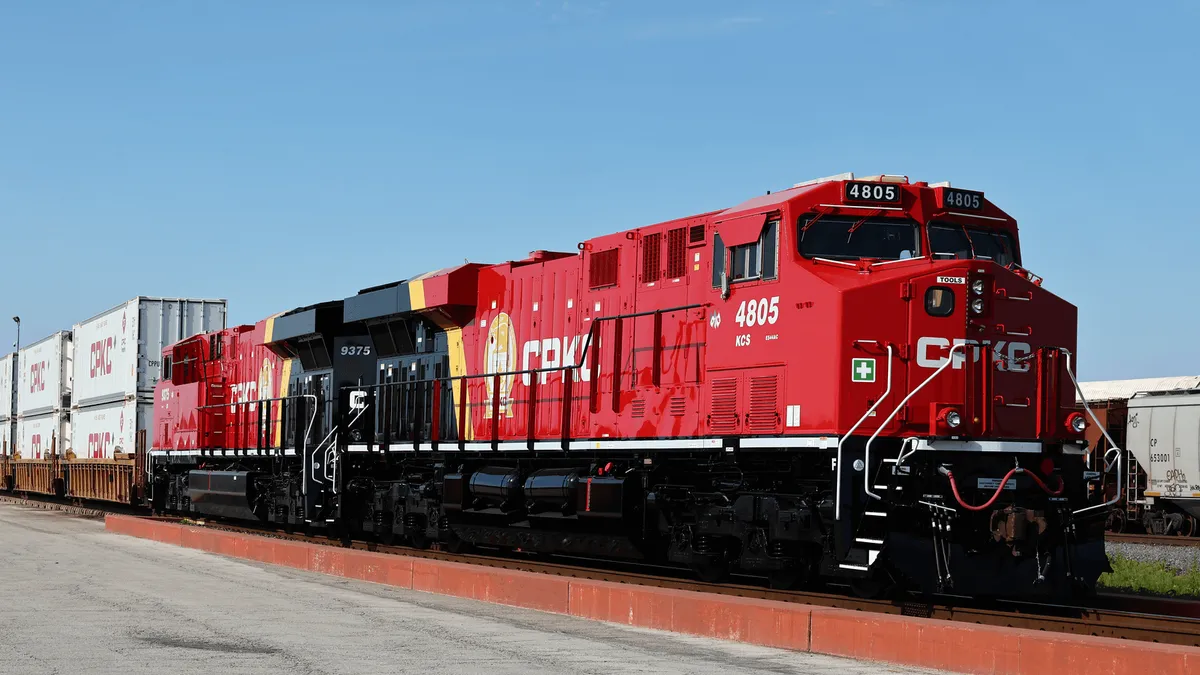Canada's labor regulators on Friday ruled disruption to the nation's rail system would not significantly threaten public safety, opening the door for a strike or lockout to occur as early as Aug. 22 — if negotiations fail.
The Canada Industrial Relations Board noted availability of critical supplies including fuel, propane and water could be delivered either by truck or pipelines. Still, experts have warned a disruption to Canada's rail system could significantly hamper supply chains, particularly for industries like food and automotive, which frequently rely on rail for distribution.
The board ordered a 13-day cooling off period, which created a two-week window before any labor disruption can occur. This provides time for the Teamsters Canada Rail Conference to continue talks with Canadian National Railway and Canadian Pacific Kansas City. Negotiations resumed Aug. 7.
However, talks between the parties have yet to yield a new contract, to replace the one that expired at the end of last year. The slow progress has led some stakeholders to remain pessimistic of a disruption-less resolution.
“It's most probable that we'll have a work stoppage, both railroads,” CPKC President and CEO Keith Creel told analysts during the company’s earnings call last month, estimating a stoppage could occur by the end of August.
Agricultural companies have already begun making contingency plans and bracing for fallout. Nutrien, the world’s largest fertilizer maker, has ramped up its domestic distribution network, though acknowledged that a work stoppage of any length would impact sales.
“We're concerned about the potential for the rail strike...given the impact that this would have not only on nutrients, but on our customers and the broader economy,” Mark Thompson, recently named Nutrien’s CFO, said in an earnings call.
As fears abound among shippers, Canada’s major railroads have also reported a loss of international freight business.
John Brooks, EVP and chief marketing officer at CPKC, during the company’s earnings call pointed to the possibility of a strike as the cause of the railroad’s Q2 international volume dropping 9% from a year ago.
This also is a problem for Canadian National, CEO Tracy Robinson said during the company’s earnings call July 23. Although the railroad was running normally, international freight diversions were already taking place. Even if a new deal was reached, Robinson said, "it will take a period of time to get that international business back routed up to the Canadian ports."
The Teamsters said in a statement the union would provide the necessary 72-hour advance notice in the event of any strike action. Sticking points to getting a labor deal done include wages, crew scheduling and fatigue management, according to the union.
Seeking a quick resolution to the contract stalemate, Canadian National in an emailed statement Friday said it is requesting Canada's minister of labour to order binding arbitration. The union has previously rejected this action.
Meanwhile, CPKC stood with Canadian National, which also indicated it would begin a phased shutdown of its network unless a new labor deal was reached. CPKC said in statement Friday, it will lock out the Train and Engine division and TCRC - Rail Traffic Controller division on Aug. 22, unless a new labor deal is negotiated or the parties agree to binding arbitration.
Sarah Zimmerman contributed to this story.












